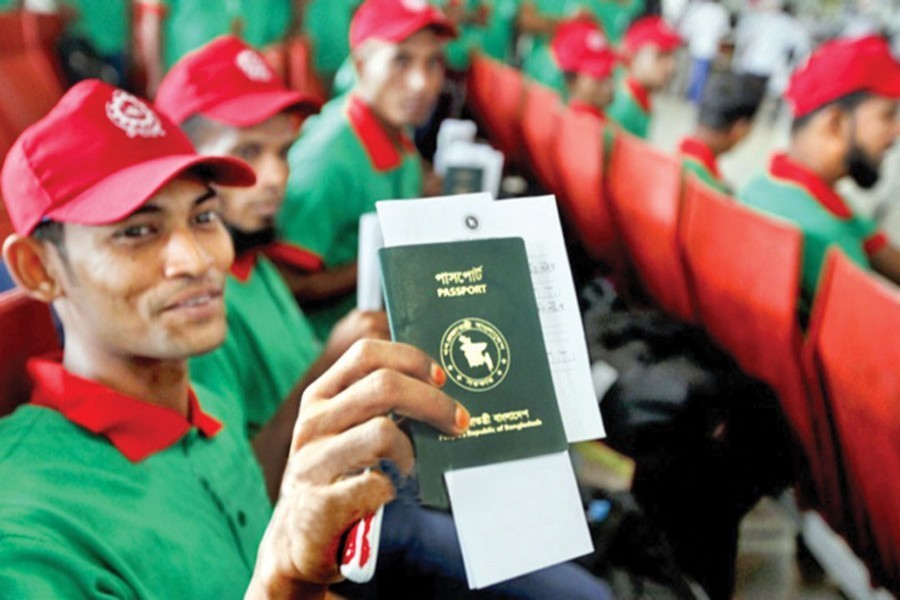The jobs for outbound workers through the government's lone recruitment agency had been almost stagnant for years due to lack of proper strategy and marketing mechanism, officials and sector insiders have said.
The Bangladesh Overseas Employment and Services Limited (BOESL) sent only 85,469 workers abroad during the last 34 years (from January 1984 to June 2018), according to the statistics available on its website.
Experts said despite having potentials the BOESL has failed to send adequate number of workers abroad.
The agency could be a role model for private sector recruiters, as its success rate is higher in terms of safe migration, they opined.
According to a recent draft policy document, prepared by the Refugee and Migratory Movements Research Unit (RMMRU), the BOESL has higher organisational capacity than the private recruitment agencies. But, its contribution to overall migration is 2.0 per cent only.
The entity is sending quality workers at minimum migration cost. So it should focus more on market expansion in different countries, the document also mentioned.
It recommended that the BOESL requires a centralised IT division, research and development wing, and regional and branch offices to perform its functions more effectively.
Salim Mollah, general manager of the BOESL, said they cannot go for aggressive marketing, like the private recruiters, due to lengthy procedure. So the outflow of workers through the agency is slow.
"As the BOESL is a government-run agency, it needs to maintain some procedures, if we want to expand market. So we only depend on the Bangladesh mission offices abroad."
Private agencies maintain many channels and strategies to explore recruitment demand and send workers. But the BOESL cannot do these, as it has certain responsibilities as a government organisation.
"We ensure cent per cent transparency as well as safe and orderly migration. So we cannot engage any intermediaries to explore demand and send workers."
But the agency is increasing its recruitment target every year to some extent. Last year the target was 11,000, and this year it will try to send 11,500 workers abroad, he added.
Marina Sultana, director programme of the RMMRU, said the BOESL should introduce a proper strategy to increase the number of workers abroad.
The organisation sends workers at low migration cost and follows procedures duly to ensure safe migration. So, it should act more actively to send more workers, and thus set an example to the private recruiters regarding promoting successful and safe migration.
The BOESL sends skilled and semi-skilled workers at a cost of Tk 52,250 and Tk 34,310 each respectively, and skilled professionals at Tk 86,850. It also sends female garment workers to Jordan at only Tk 17,750 each.
The state-run agency started sending workers in 1984. So far, it has sent workers to 27 countries. But except South Korea and Jordan, it sends workers to other countries occasionally.
Some 18,936 skilled workers have gone to South Korea and 49,537 female garment workers to Jordan through the agency since 1984.


